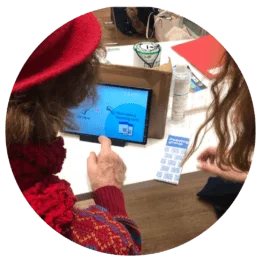
A toolkit to guide and encourage the adoption of digital engagement approaches developed by the Helix Centre as part of the Digital Inclusion Innovation Programme.
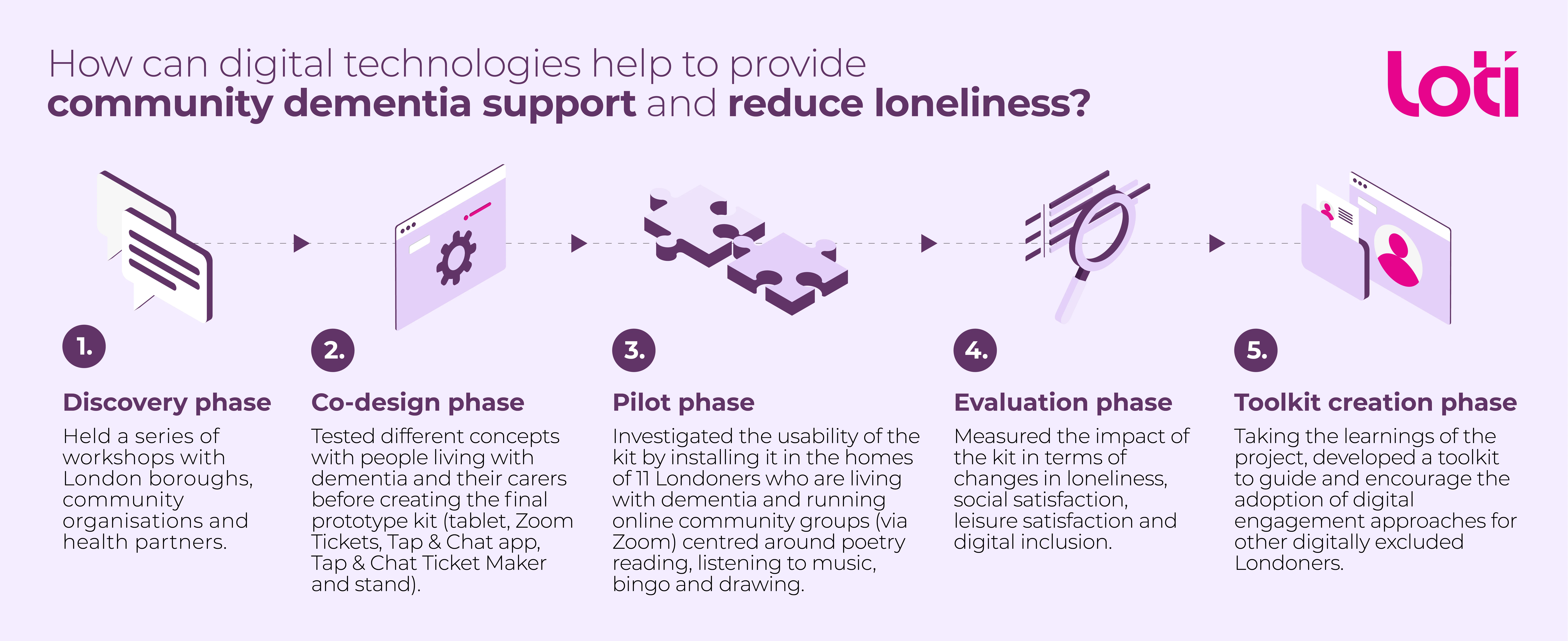

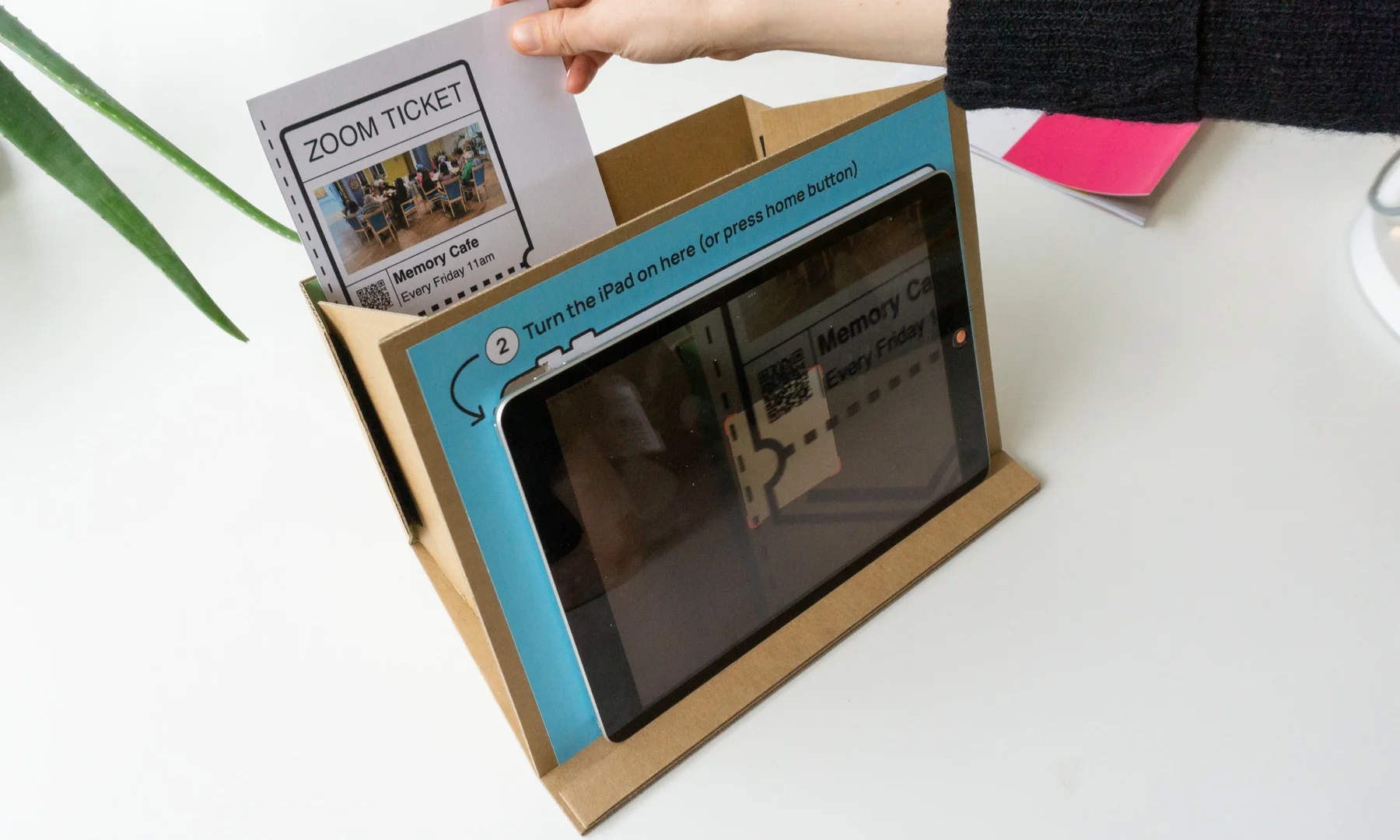
A London-wide project to co-design and pilot new ways to provide community dementia support.
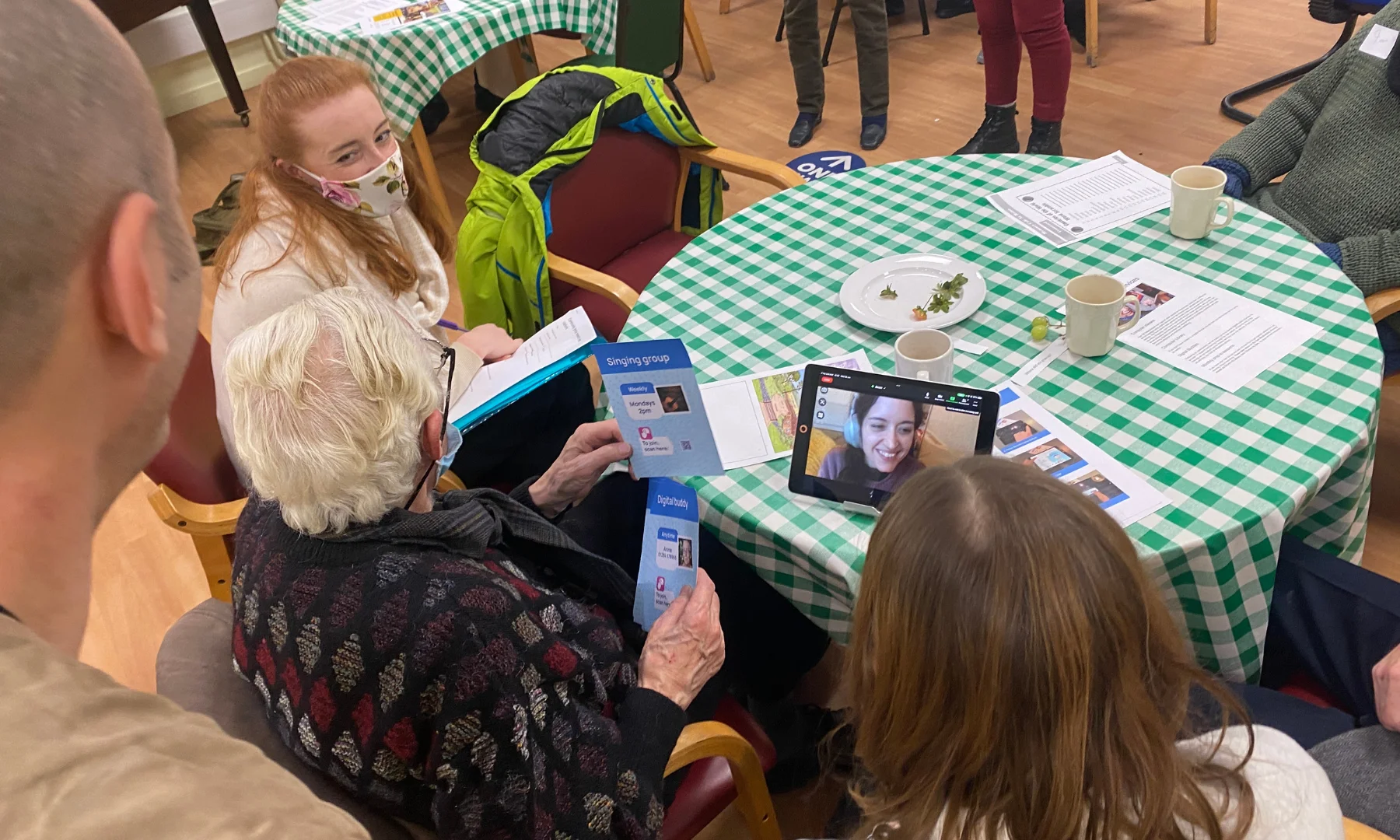
This toolkit was developed to share the methods, approaches and outputs of our digital inclusion project in order to make it easier for community groups and London boroughs to emulate this approach.
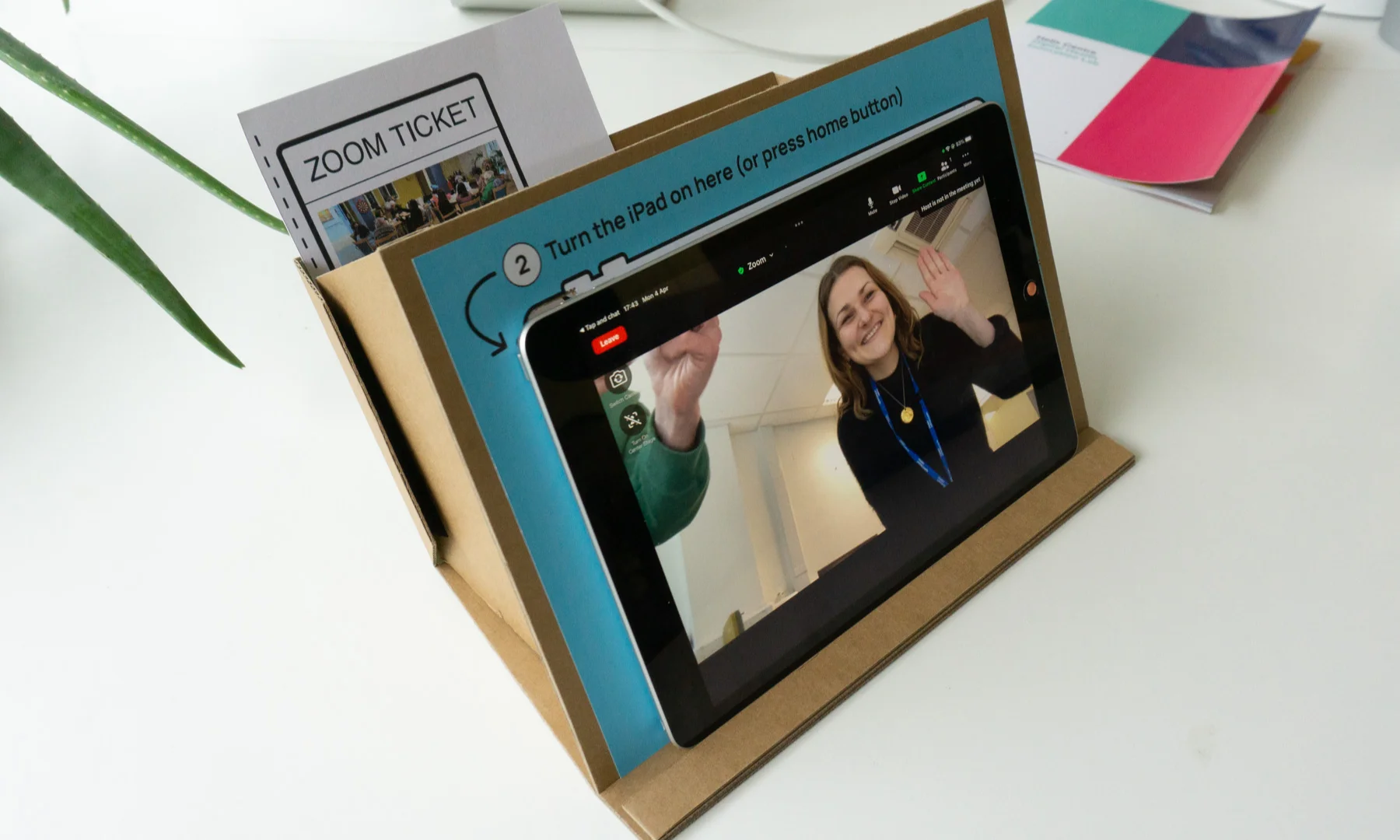
The Digital Befriending Kit aims to augment a standard tablet computer to make it easier for people with little experience of technology to access Zoom video calls and therefore participate in online social activities.
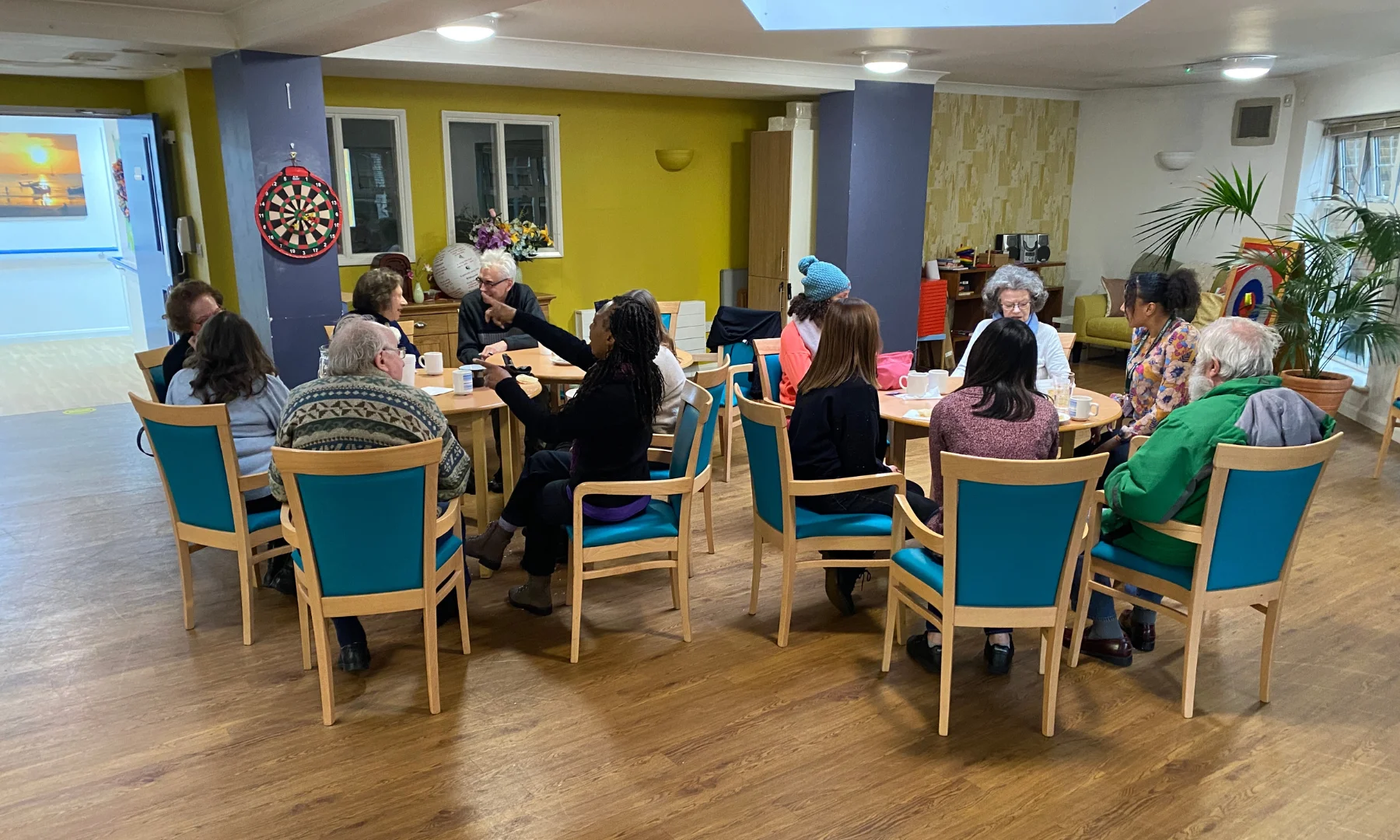
Our discovery phase took place over four months between September 2021 and January 2022. We worked closely with a number of London boroughs, Voluntary Community Sector (VCS) organisations and health partners throughout this phase.
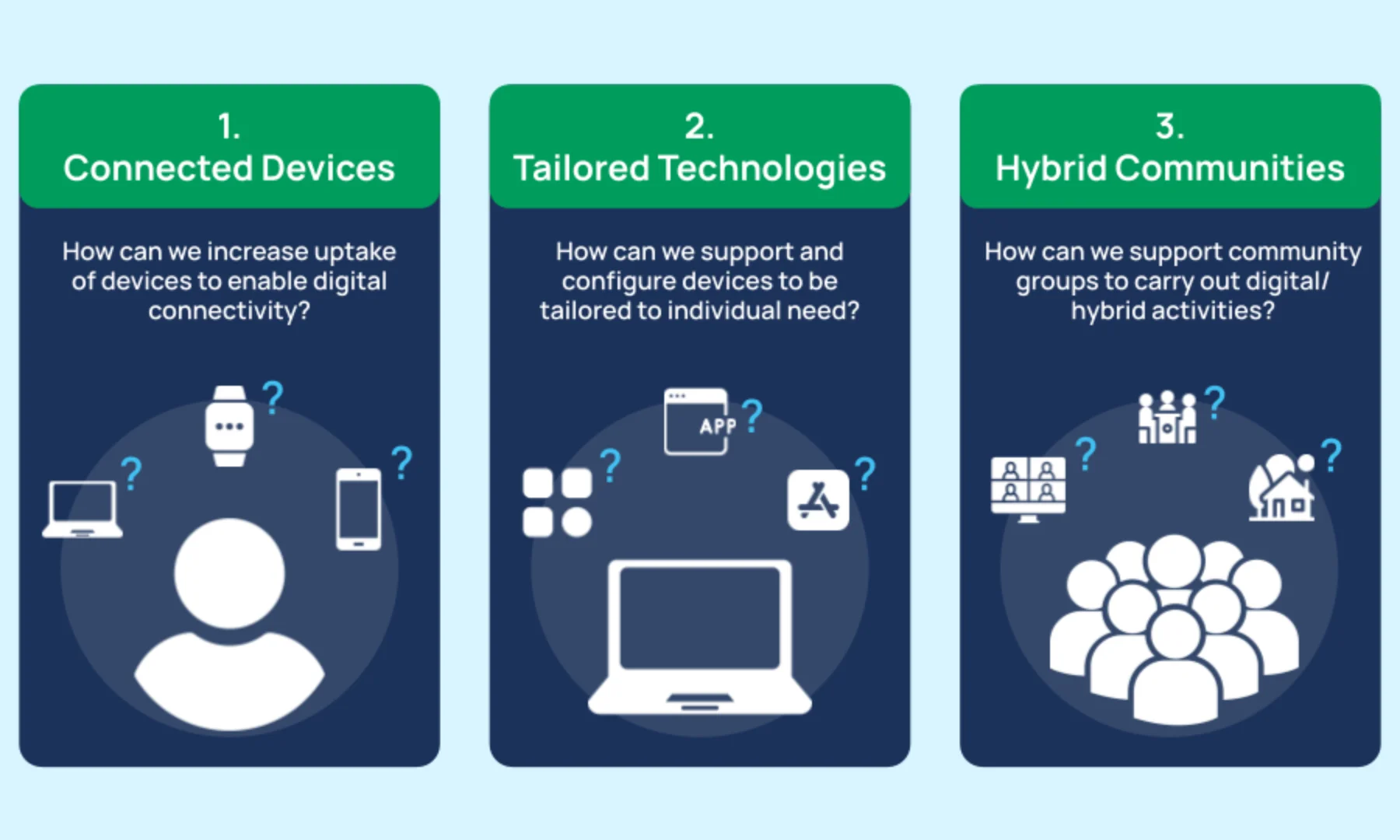
After synthesising our insights from workshop 1 and establishing our three concepts, we ran a prototyping workshop to test each concept with local authorities and community organisations.
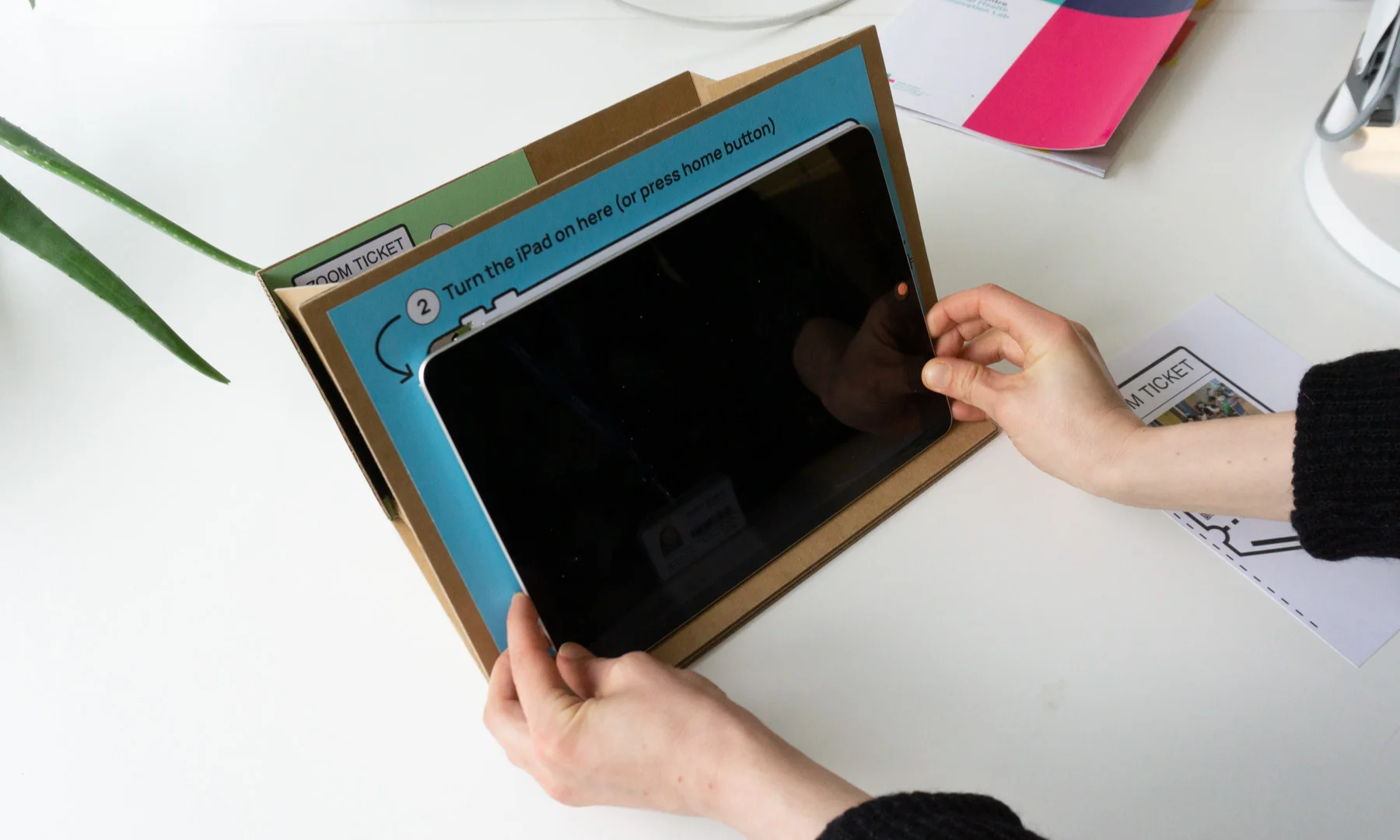
We started to develop the physical prototypes – in particular, the Zoom Tickets and tablet stand – so that we could co-design and test them with community groups and make joining a Zoom call as seamless as possible.

In order to have confidence that the kit would be used successfully by people living with dementia in their own homes, we first tested it with participants at three dementia community groups.
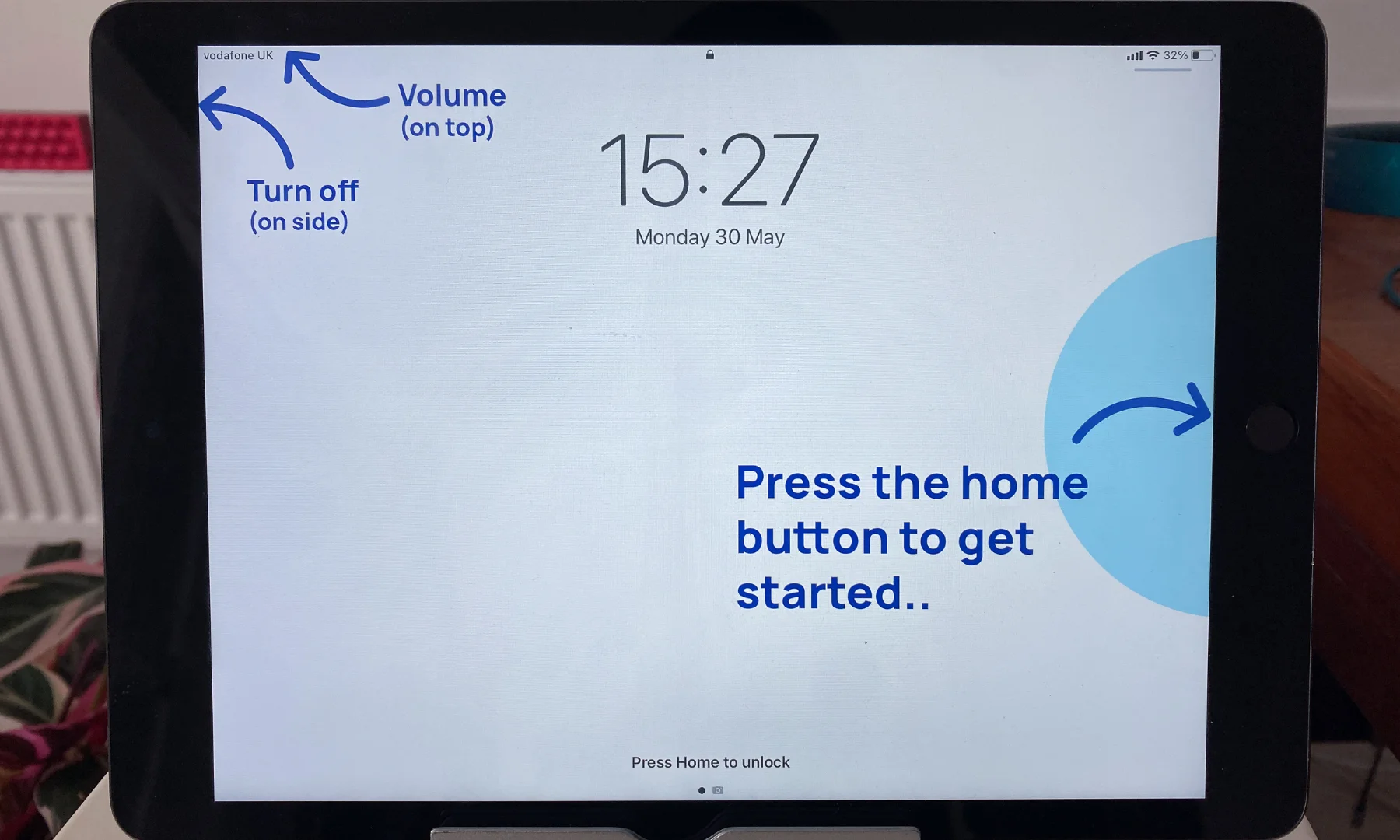
We simplified the experience of using the devices by configuring the settings.

Resources used by the Helix Centre team to facilitate the co-design process.

In order to determine whether this project achieved the desired outcomes, we had an evaluation plan.
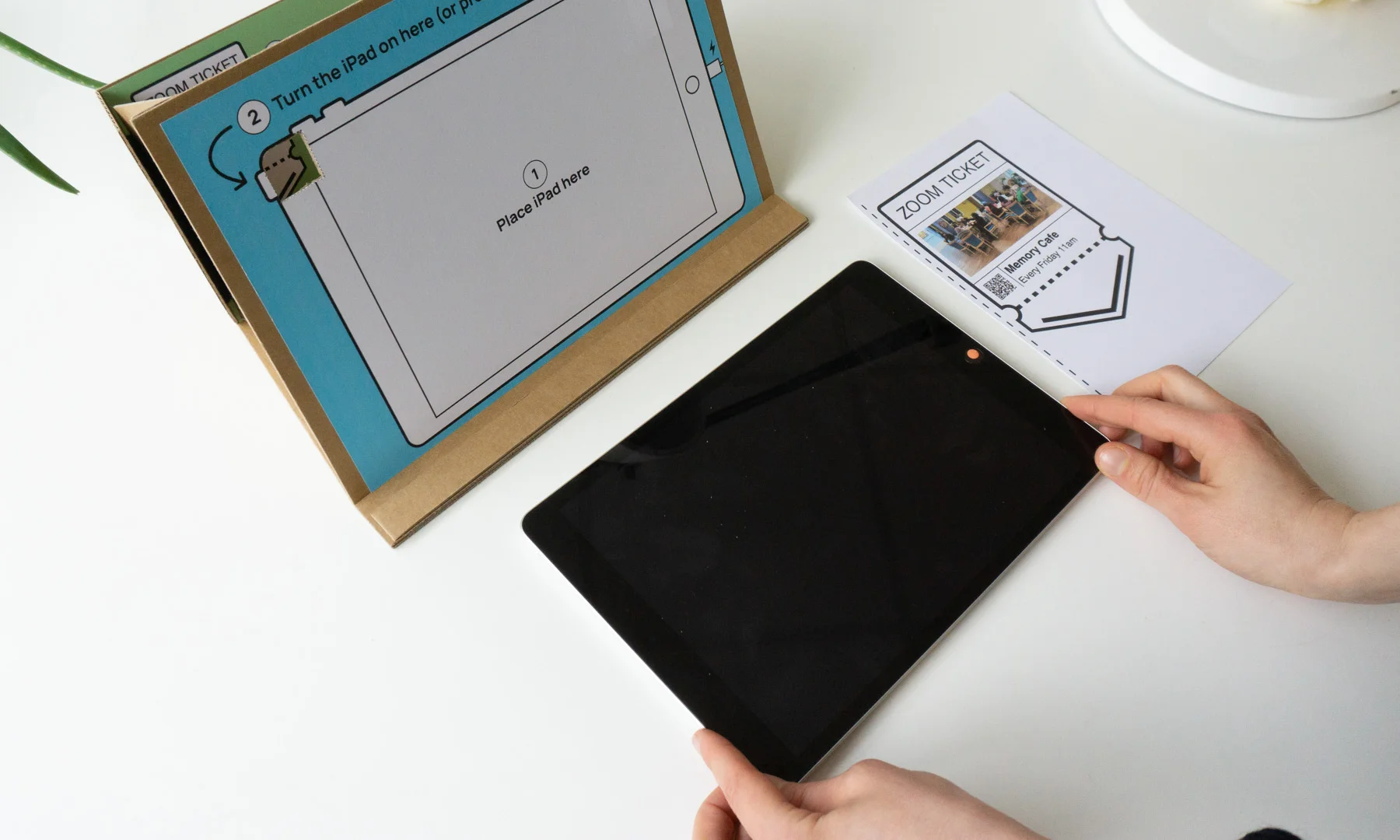
By analysing the pilot we evaluated the effectiveness of the Digital Befriending Kit in reducing social isolation and digital exclusion for people living with dementia and their carers.